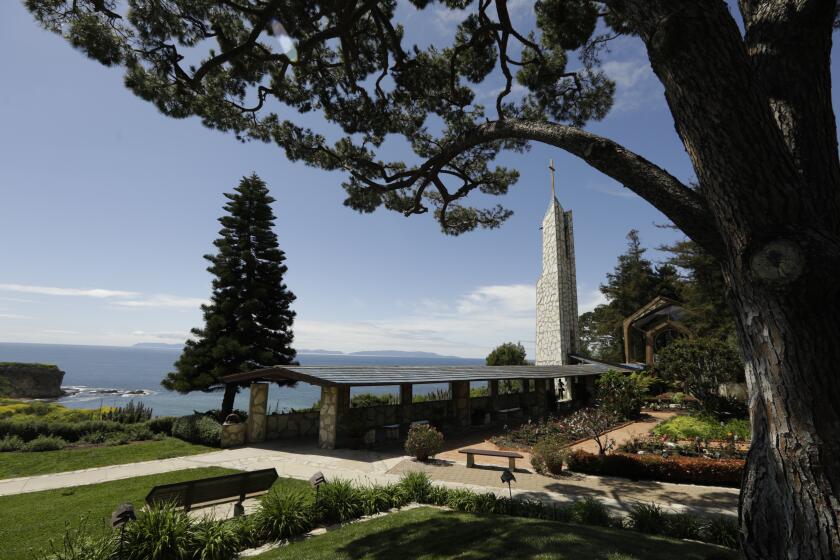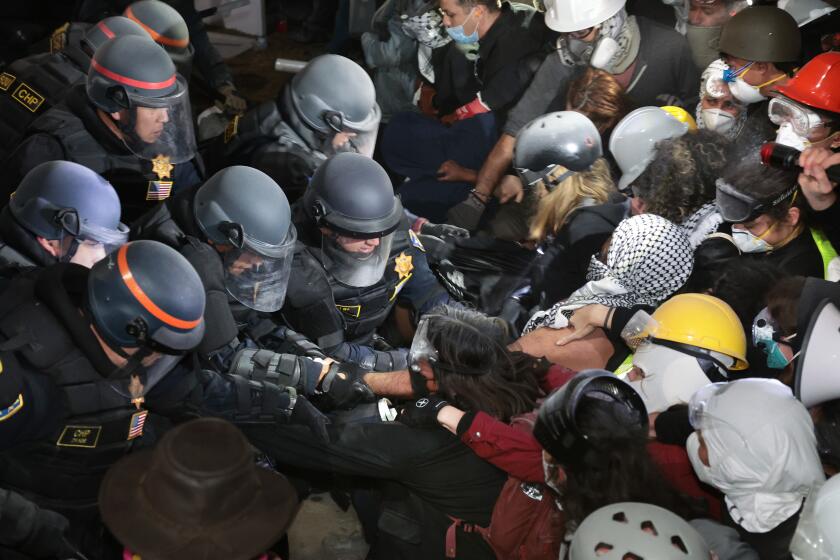Foster Parents Protest Late Funds
Janet Enos of Long Beach takes care of babies who have been damaged in the womb by alcohol- and drug-dependent mothers.
Enos does not expect to profit financially from the 24-hour care she gives. Like other foster parents, she is a volunteer, entitled only to reimbursement for the basic living expenses of the children she shelters.
Enos is troubled that the monthly support checks she receives from the county barely pay those expenses and have not kept pace with inflation for the past five years. But what bothers her more is that she usually has to wait 60 to 90 days--and sometimes the better part of a year--before receiving the first payment for a child. This month, she is expecting $1,200 in reimbursement checks for a baby who was in her home from November through January.
“It’s ridiculous when you’ve got to go into your savings to make it up,” Enos said. “They have to do something about the system for getting money for these kids.”
‘Kids Need Clothes’
Selma Ramirez, another foster parent who has experienced long delays, added: “It gets very depressing when you don’t get checks and the kids need clothes.”
Many other foster parents in Los Angeles County share the reimbursement problem, and this month, they have taken action to change the system. The 150-member Long Beach Foster Parents’ Assn. voted not to accept new placements during March in a protest against delayed payments and the lack of an increase in the amount of support checks.
A sister organization in the San Gabriel Valley is conducting a similar protest, and other foster parent organizations have complained to Robert L. Chaffee, head of the county Department of Children’s Services.
Confident of Solution
Chaffee said that after meeting recently with foster parents, he is confident that the payment problems will be corrected.
And several parents confirmed that there are signs that improvements may be forthcoming.
Overall, the Long Beach association’s protest has not appreciably affected the department’s ability to place children. While the approximately 400 parents in the Long Beach and San Gabriel Valley area organizations compose about a tenth of the county foster parent roster, not all of them have had vacancies in March.
Chaffee said 15 families had called the department to say they would not be accepting new placements this month.
“Whenever foster parents say they’re not going to take children, it always has an impact,” said Jean McIntosh, an assistant bureau director at the Department of Children’s Services. But, she added that the department had not detected an effect from the parents’ action.
The president of the Long Beach Foster Parents’ Assn., Shirley Ierien, said her group did not intend to disrupt the operation of the foster family placement system.
“We’re not trying to close down the system,” Ierien said. “That’s not the point. We’re saying there’s a problem, you haven’t done anything about it. Now we’re going to protest, so that you do.”
Ierien said that, although foster parents’ contracts stipulate that they should receive their first reimbursement check within 45 days after they accept a child, for many parents, it takes from three to six months to get paid.
After the meeting with Chaffee, Ierien said she was satisfied that the county has begun to pay attention to her group’s demands.
“They’re just about up to date on the payments,” she said. “I took in complaints from 13 people last month, and this month, I only heard from three people who weren’t receiving payments.”
McIntosh said she did not think the payment delays were happening on a wide scale. She attributed the problems to an antiquated payment system that is not computerized.
McIntosh said foster parents should see a considerable improvement in check processing times when a new computer system goes into effect in June.
Help Parents Seek Increase
Even before the meeting, county officials had agreed to help parents seek an increase in the money the state pays for foster child support. Those “board and care” rates range from $294 a month for babies with no severe medical problems to $539 a month for teen-agers with medical problems. Those amounts are meant to cover food, clothing, school expenses, birthday gifts--anything a child could need except for medical care. The latter expenses are paid by Medi-Cal.
The rates have not been increased more than 1% since 1983.
More to Read
Start your day right
Sign up for Essential California for news, features and recommendations from the L.A. Times and beyond in your inbox six days a week.
You may occasionally receive promotional content from the Los Angeles Times.






